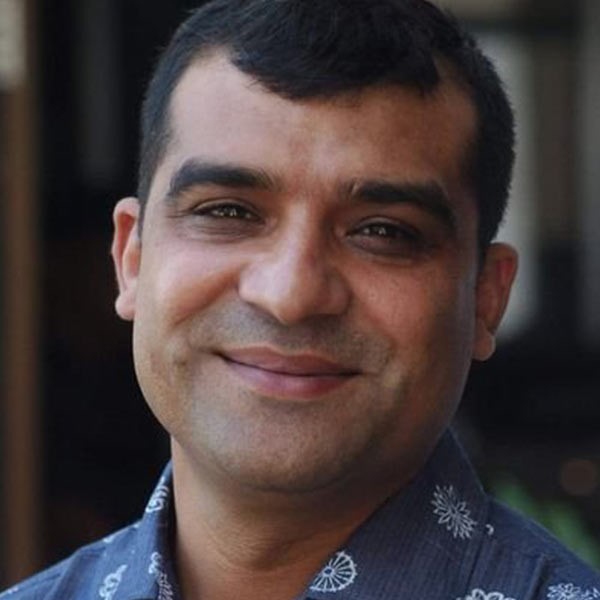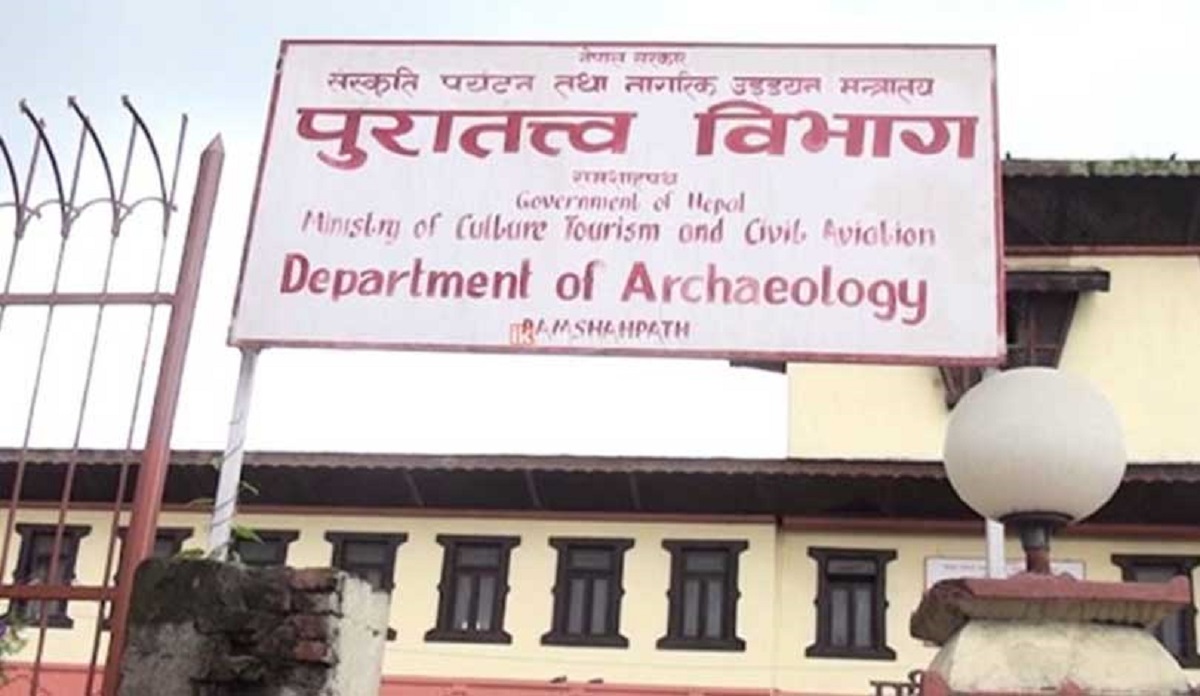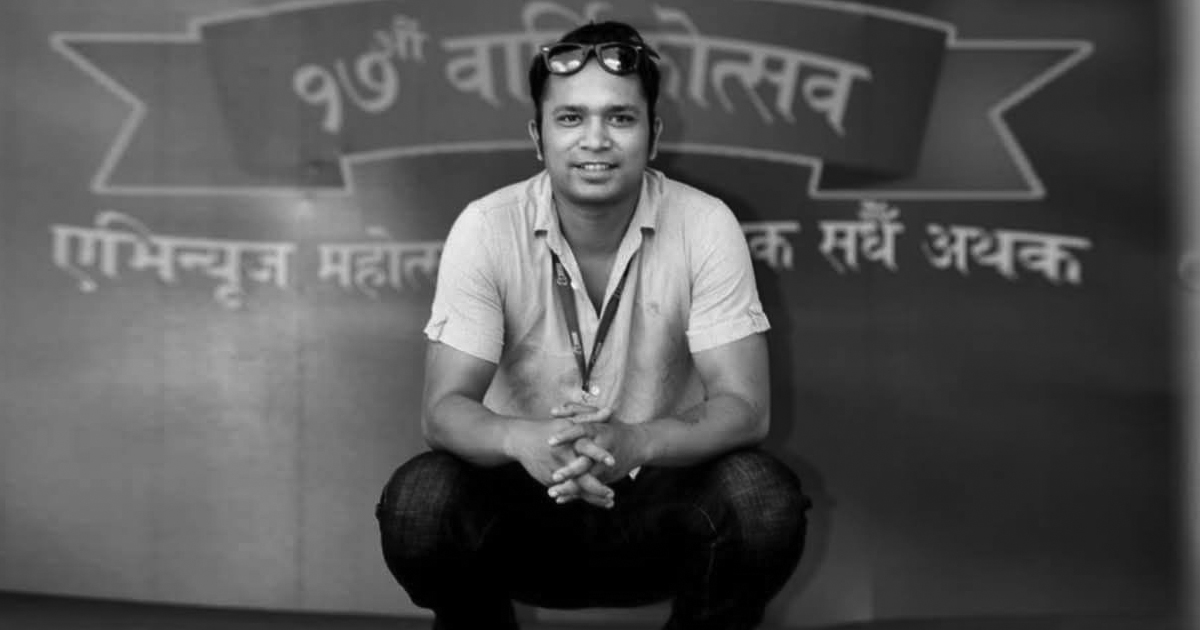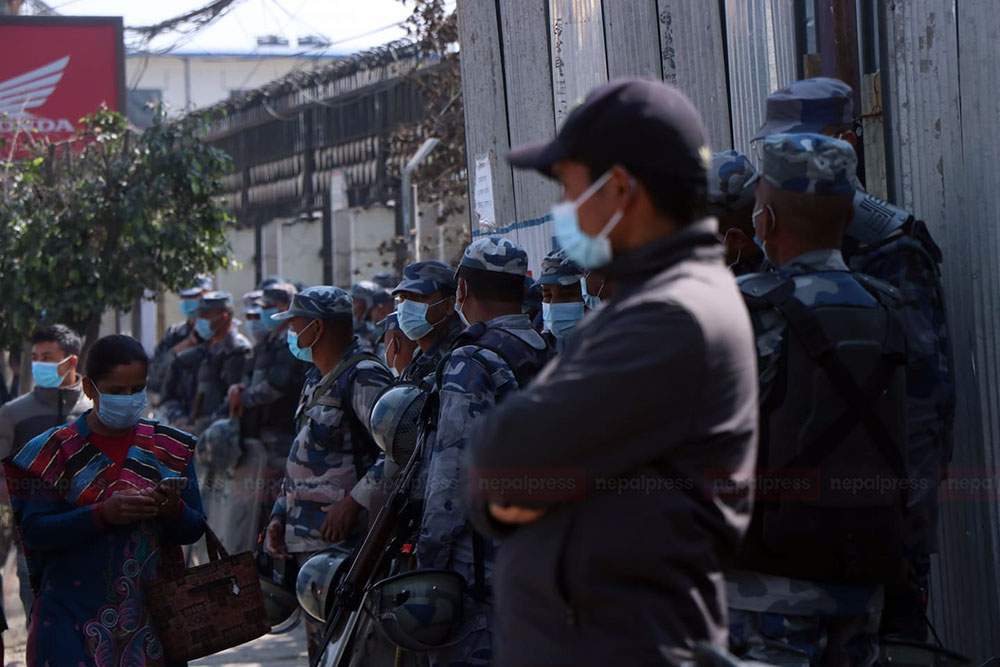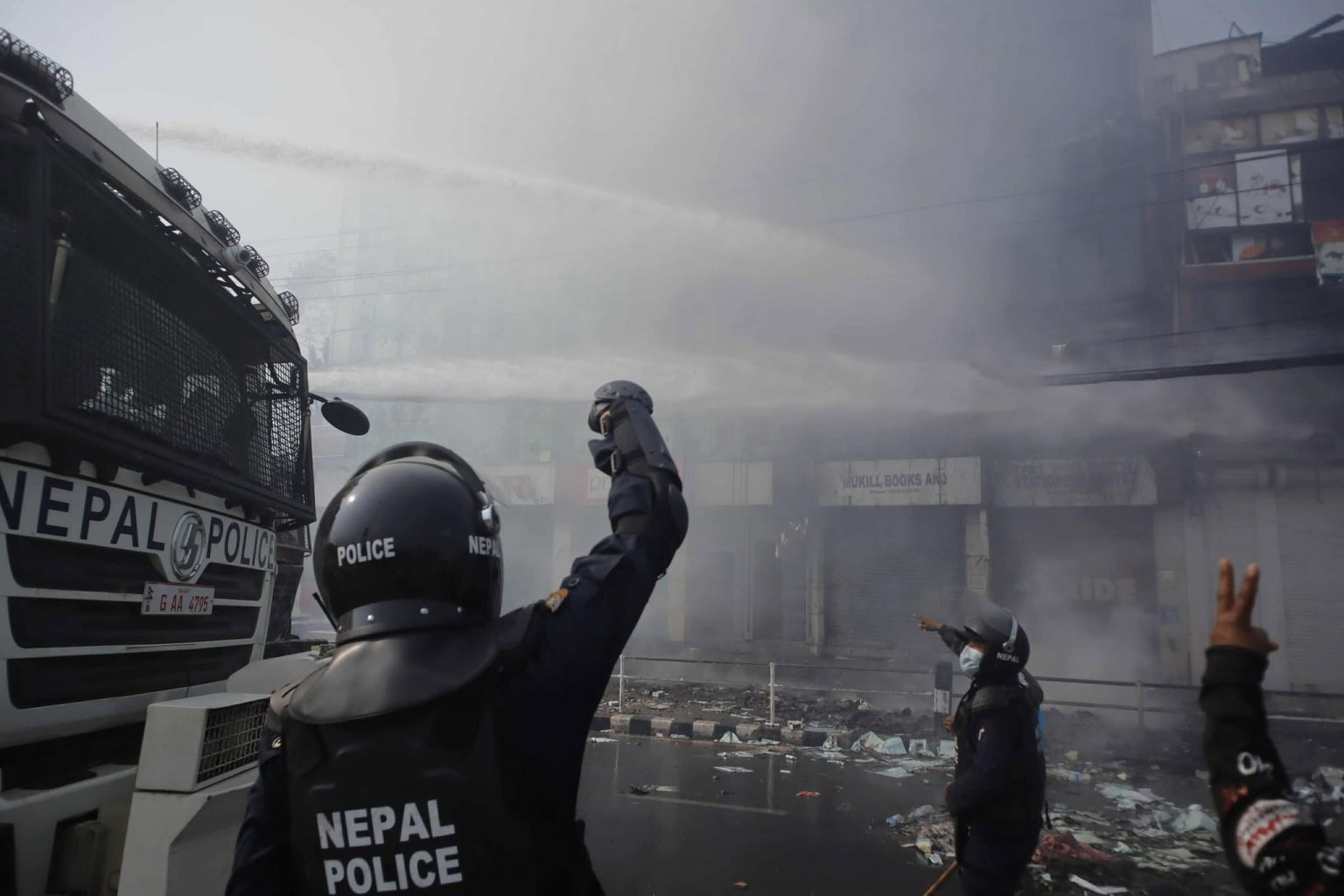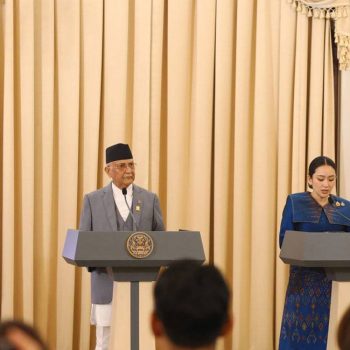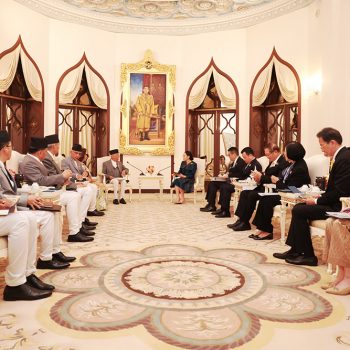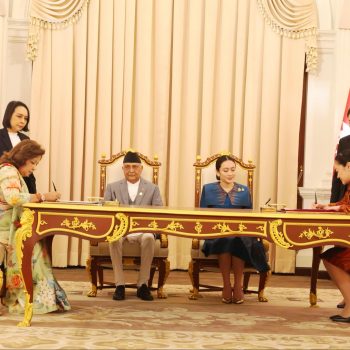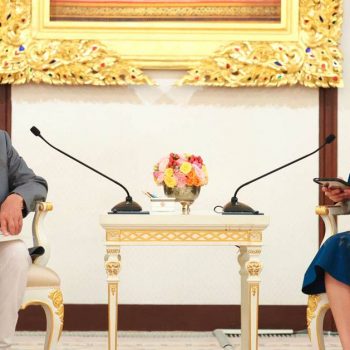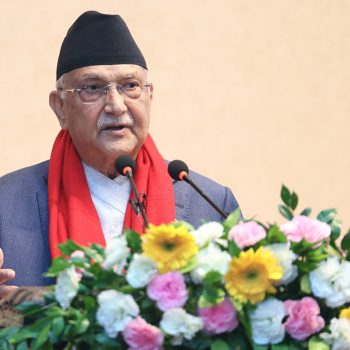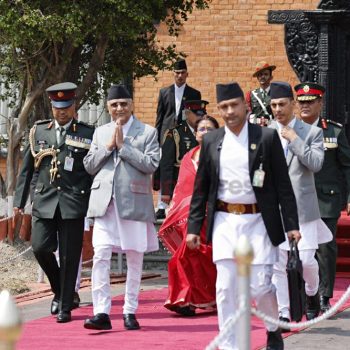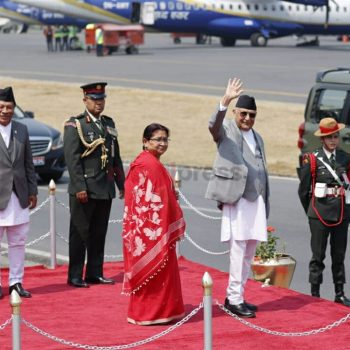Supreme Court Dismisses ‘Road and Media Trial’ !
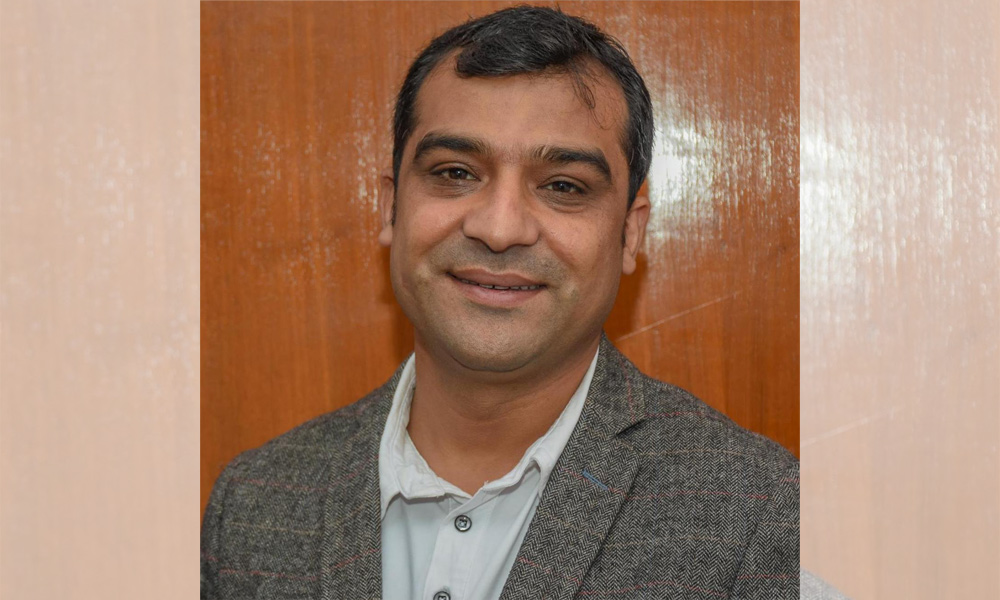
KATHMANDU: After the defamation suit against Prime Minister KP Sharma Oli, four former chief justices and former speaker Daman Nath Dhungana contempt was filed in the Supreme Court, They were trying to set an “agenda” – Politician and leaders when speaking against any issue under consideration in court is disrespect but the same thing done by former justices is their freedom of expression.
The contempt case against Oli and Daman Nath Dhungana was registered at the Apex Court. But after a contempt case was registered against four former chief justices, attempts were made to use the weapon of freedom of expression to pressure the court. The court refused to issue a different order on the same nature of expression, the ambush in the name of freedom of expression became inactive.
Manoj Sharma, the junior of the 19 judges of the Supreme Court, directed the chief executive, former chief of the legislature and former chief of the judiciary to submit a written reply in the contempt case. It is bravery in itself and a ‘departure’ that rejects the ‘road trial’.
But the single-bench order of Justice Manoj Kumar Sharma warns of the recent trend of seeking recognition from street trials and media trials.
It is common in the world for a leader to speak or to argue in his favour on a case pending in a court of law. Now, if you want to collect the daily speeches of KP Oli and Prachanda, there is a competition to strengthen their own argument in the case under consideration in the court.
Oli is not the first Prime minister to take a written reply to the court. Earlier, leaders like late Girija Prasad Koirala to Baburam Bhattarai and Pushpa Kamal Dahal( Prachanda) have been ordered by the court to appear in person. Former Speaker Daman Nath Dhungana is also a political figure.
But for the first time in the history of the Supreme Court, four ‘justices’ have been ordered to appear in person in contempt of court case with a written reply. The order overturned the road trials of four former chief justices.
While the issue of dissolution of the House of Representatives was being heard in the Constitutional Court, four former Chief Justices Min Bahadur Rayamajhi, Anupraj Sharma, Kalyan Shrestha and Sushila Karki had presented their verdict (road trial) from the road. They have also tried to establish this decision as a ‘media trial’ according to their convenience.
But the single-bench order of Justice Manoj Kumar Sharma warns of the recent trend of seeking recognition from street trials and media trials. This order is a blow to the organized campaign to create pressure in the judicial process by taking not only the plaintiffs and defendants but also the former judges to the streets in the case pending in the court.
The tendency to make decisions on the streets had to be stopped to put pressure on the judiciary, which had come out to uphold the dignity of the judiciary and protect its independence. Otherwise, from the day after his retirement, the Chief Justice and the judges will continue to put pressure on the plaintiff and the defendant. Just as a journal never retires, so a judge never retires is not allowed to argue in court after retirement.
Those who seek to influence the pending case against judicial independence from outside have also learned their lessons.
Quoting the language of a former chief justice, all the former chief justices who stood up for judicial supremacy are ashamed of the road trial of four and the order to give them a written reply to the contempt case. This is also a serious moral question raised by the former Chief Justices concerned.
Just as the Commission of Investigation of Abuse of Authority(CIAA) filed a corruption case against its own former Chief commissioner and Incumbent commissioner, so is the case in Nepal’s judicial history. It is huge to invite one’s own former chiefs to appear in a contempt case. This raises the question of morality above all.
The people who should always be vigilant in favour of the dignity and judicial supremacy of the court have been summoned to the courtroom today. Despite the arguments, the statements of the four former chief justices came to put pressure on the court. This was indirectly stated by the Chief Justice in the Constitutional Bench.
After senior advocates Raman Shrestha and Dinesh Tripathi argued for the prime minister to file a contempt case, Rana asked him not to bring outside issues to the bench. He further said that if we want to know who said what outside, we have to bring our past and not only our present.
That’s what happened without saying. Former chief justices may appear in court and submit written answers. But the order has set a standard – the style of exerting outside pressure on the judiciary and building public opinion through the media setting agenda is not acceptable.
Recently, there has been a media trial in the case under consideration in the court to create external pressure on the judge even before he sits in the bench. The judgment of the court has started to be reversed. A campaign has been launched to honour the judiciary by interpreting the verdict of the judge.
Before a judge makes a decision, there is a fear of what media is being used against him outside and how it will affect his career. Both sides are never satisfied with the court’s decision. The court is also the place to appeal and review the decision of the court. But the judiciary was stunned when former chief justices joined the pressure group to wield the sword of the street rather than the constitution.
This order has sent a clear message that the tendency to debate outside the courtroom and to rule outside the court is not acceptable. It has been established that no one will be exempted from contempt of court even if a verdict is passed tomorrow.
No judge should be called junior or senior after sitting on the bench, there should only be orders and decisions made. Manoj Sharma has proved himself in that. A judge working in a court of law looks at how to protect the organization he works for. Those who seek to influence the pending case against judicial independence from outside have also learned their lessons.


